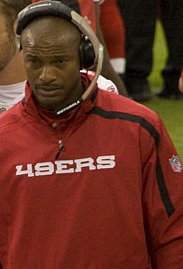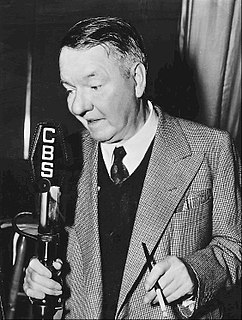A Quote by Norbert Wiener
Mathematics is a field which has often been compared with chess, but differs from the latter in that it is only one's best moments that count and not one's worst.
Related Quotes
The Advantage is that mathematics is a field in which one's blunders tend to show very clearly and can be corrected or erased with a stroke of the pencil. It is a field which has often been compared with chess, but differs from the latter in that it is only one's best moments that count and not one's worst. A single inattention may lose a chess game, whereas a single successful approach to a problem, among many which have been relegated to the wastebasket, will make a mathematician's reputation.
A chess problem is genuine mathematics, but it is in some way "trivial" mathematics. However, ingenious and intricate, however original and surprising the moves, there is something essential lacking. Chess problems are unimportant. The best mathematics is serious as well as beautiful-"important" if you like, but the word is very ambiguous, and "serious" expresses what I mean much better.
The broader the chess player you are, the easier it is to be competitive, and the same seems to be true of mathematics - if you can find links between different branches of mathematics, it can help you resolve problems. In both mathematics and chess, you study existing theory and use that to go forward.
Mathematics never reveals man to the degree, never expresses him in the way, that any other field of human endeavour does: the extent of the negation of man's corporeal self that mathematics achieves cannot be compared with anything. Whoever is interested in this subject I refer to my articles. Here I will say only that the world injected its patterns into human language at the very inception of that language; mathematics sleeps in every utterance, and can only be discovered, never invented.
Srinivasa Ramanujan was the strangest man in all of mathematics, probably in the entire history of science. He has been compared to a bursting supernova, illuminating the darkest, most profound corners of mathematics, before being tragically struck down by tuberculosis at the age of 33, like Riemann before him. Working in total isolation from the main currents of his field, he was able to rederive 100 years' worth of Western mathematics on his own. The tragedy of his life is that much of his work was wasted rediscovering known mathematics.
As mathematics had been my best subject at school, my parents proposed - and I accepted - studies at the University of Lund in mathematics, statistics, and economics. The choice of the latter subject is said to be due to the fact that at the age of five years, I was very fond of calculating the cost of the various cakes my mother used to bake.
There are fields of scientific work...which have been explored from the different sides of pure mathematics, statistics, electrical engineering, and neurophysiology...in which every single notion receives a separate and different name from each group, and in which important work has been triplicated or quadruplicated, while still other important work is delayed by the unavailability in one field of results that may have already become classical in the next field.
I learned a lot from the stories my uncle, aunts, and grandparents told me: that no one is perfect but most people are good; that people can't be judged only by their worst or weakest moments; that harsh judgements make hypocrites of us all; that a lot of life is just showing up and hanging on; that laughter is often the best, and sometimes only response to pain.
One cannot inquire into the foundations and nature of mathematics without delving into the question of the operations by which the mathematical activity of the mind is conducted. If one failed to take that into account, then one would be left studying only the language in which mathematics is represented rather than the essence of mathematics.
Religion shows a pattern of heredity which I think is similar to genetic heredity. ... There are hundreds of different religious sects, and every religious person is loyal to just one of these. ... The overwhelming majority just happen to choose the one their parents belonged to. Not the sect that has the best evidence in its favour, the best miracles, the best moral code, the best cathedral, the best stained-glass, the best music when it comes to choosing from the smorgasbord of available religions, their potential virtues seem to count for nothing compared to the matter of heredity.





































